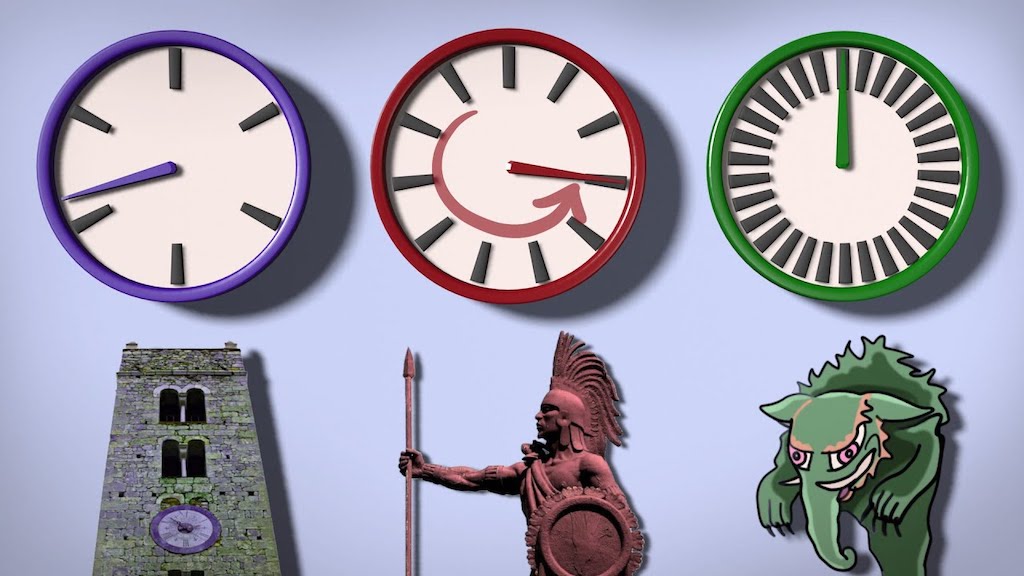How Different Cultures and Languages Tell Time

Joshua Rudder of the animated language series NativLang explains how different cultures and different languages interpret time. Because time is a human construct, there is no one right way to tell it. It can vary according to geography, tradition, and circumstances. Those who live near the equator use the reliability of the sun as a timekeeper. Other clocks measure days in six hour increments and more commonly, in 12 hour and 24 hour increments.
How many hours are in a day? Which direction is clockwise? Can hours shrink? The way you answer those depends on your culture and your language.
via Digg
Related PostsThe Complex Task of Translating the English Word You' Into Other LanguagesGently Debunking the Old Longfellow Adage That Says Music Is the Universal Language of All Mankind'How Different Languages Relate to Each Other Through Commonalities, Borrowing and CoincidenceHow the Substitution of Familiar Sounds for Those That Are Unfamiliar Creates a Foreign AccentWhen Should I Visit? Predicts Best Time to Visit Museums in LondonSpeech-Language Pathologist Teaches Her Dog to Communicate Through a Custom Button Talking BoardFollow Laughing Squid on Facebook, Twitter, and Subscribe by Email.
The post How Different Cultures and Languages Tell Time first appeared on Laughing Squid.